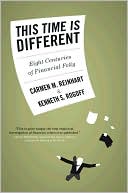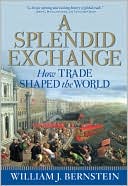The Slave Ship: A Human History
In this widely praised history of an infamous institution, award-winning scholar Marcus Rediker shines a light into the darkest corners of the British and American slave ships of the eighteenth century. Drawing on thirty years of research in maritime archives, court records, diaries, and firsthand accounts, The Slave Ship is riveting and sobering in its revelations, reconstructing in chilling detail a world nearly lost to history: the 'floating dungeons' at the forefront of the birth of...
Search in google:
For more than three centuries, slave ships carried millions of people from the coasts of Africa to the New World. In The Slave Ship, award-winning historian Marcus Rediker creates an unprecedented history of these vessels and the human drama acted out on their rolling decks. Rediker restores the slave ship to its rightful place alongside the plantation as a formative institution of slavery, as a place where a profound and still haunting history of race, class, and modern capitalism was made. The New York Times - Adam Hochschild …the notorious Middle Passage across the Atlantic, on which more than 12 million Africans were embarked for the Americas over more than three centuries, we know about almost entirely from the perpetrators. There are few accounts of this voyage by slaves…but an astonishingly large body of evidence remains from those who trafficked in human beings: letters, diaries, memoirs, captain's logbooks, shipping company records, testimony before British Parliamentary investigations, even poetry and at least one play by former slave-ship officers. It is this rich array of material that Marcus Rediker plumbs, more thoroughly than anyone else to date, for his masterly new book, The Slave Ship: A Human History…Rediker has made magnificent use of archival data; his probing, compassionate eye turns up numerous finds that other people who've written on this subject, myself included, have missed.
Introduction 1Life, Death, and Terror in the Slave Trade 14The Evolution of the Slave Ship 41African Paths to the Middle Passage 73Olaudah Equiano: Astonishment and Terror 108James Field Stanfield and the Floating Dungeon 132John Newton and the Peaceful Kingdom 157The Captain's Own Hell 187The Sailor's Vast Machine 222From Captives to Shipmates 263The Long Voyage of the Slave Ship Brooks 308Epilogue: Endless Passage 343Acknowledgments 357Notes 361Index 417Illustration Sources and Credits 433
\ Adam Hochschild…the notorious Middle Passage across the Atlantic, on which more than 12 million Africans were embarked for the Americas over more than three centuries, we know about almost entirely from the perpetrators. There are few accounts of this voyage by slaves…but an astonishingly large body of evidence remains from those who trafficked in human beings: letters, diaries, memoirs, captain's logbooks, shipping company records, testimony before British Parliamentary investigations, even poetry and at least one play by former slave-ship officers. It is this rich array of material that Marcus Rediker plumbs, more thoroughly than anyone else to date, for his masterly new book, The Slave Ship: A Human History…Rediker has made magnificent use of archival data; his probing, compassionate eye turns up numerous finds that other people who've written on this subject, myself included, have missed.\ —The New York Times\ \ \ \ \ Publishers WeeklyIn this groundbreaking work, historian and scholar Rediker considers the relationships between the slave ship captain and his crew, between the sailors and the slaves, and among the captives themselves as they endured the violent, terror-filled and often deadly journey between the coasts of Africa and America. While he makes fresh use of those who left their mark in written records (Olaudah Equiano, James Field Stanfield, John Newton), Rediker is remarkably attentive to the experiences of the enslaved women, from whom we have no written accounts, and of the common seaman, who he says was "a victim of the slave trade... and a victimizer." Regarding these vessels as a "strange and potent combination of war machine, mobile prison, and factory," Rediker expands the scholarship on how the ships "not only delivered millions of people to slavery, [but] prepared them for it." He engages readers in maritime detail (how ships were made, how crews were fed) and renders the archival (letters, logs and legal hearings) accessible. Painful as this powerful book often is, Rediker does not lose sight of the humanity of even the most egregious participants, from African traders to English merchants. (Oct. 8)\ Copyright 2007 Reed Business Information\ \ \ Library JournalIn Slave Ship, University of Pittsburgh history professor Rediker employs the slave vessel as the central metaphor in the exploration of the African diaspora, the roots of capitalism, and the creation of race. As a scholar of "history from below," Rediker juxtaposes the horrific machinations of the slave trade with, as the book's subtitle indicates, the daily dramas of the industry's participants-captain, sailor, and slave. The strength of Rediker's narrative-beyond the gruesome explication of the ship's inherent terror-is the use of the ship as representative of a factory that commodifies humanity and a dungeon of racial subjugation that creates a subspecies. As a result of the Atlantic journey, the slave is dehumanized and therefore ready for use as an implement of industry and agriculture. This work is carefully and intelligently read by David Drummond, a former winner of an AudioFile Earphones Award. His succinct enunciation, warm tone, and precise yet subtly compassionate interpretation enhances Rediker's already exemplary book. Strongly recommended for libraries of all sizes and an integral addition to any collection focused on the history of the African slave trade. [An LJ Best Book of 2007; also available as downloadable audio from Audible.com.-Ed.]—Christopher Rager\ \ \ \ \ Kirkus Reviews"Making the slave ship real, "historian Rediker (History/Univ. of Pittsburgh) revivifies the horror of this world-changing machine. By 1807, more than nine-million Africans in shackles, manacles, neck rings, locks and chains had been carried to New World plantations, a crime impossible without ships, the most complex machines of the age, turned for this evil purpose into floating dungeons. Rediker's multilayered narrative-marred only by an occasional eruption of academic lingo and a clunky economic analysis-examines first the captains, whose absolute authority and mastery of many duties-warden, straw boss, international merchant, technician-made them indispensable. Their violent tyranny animated the "Savage Spirit of the Trade," cascading downward to the victimized crews, the dregs of the waterfront, who in turn became victimizers, liberally employing the cat-o'-nine tails on their captives. Boarding the ships, the slaves, themselves prisoners of African wars, criminals in their own societies or kidnap victims, transitioned to European control and found their world completely changed. Here Rediker (Villains of All Nations: Atlantic Pirates in the Golden Age, 2004, etc.) excels, detailing their strategies of resistance-refusing to eat, jumping overboard, rising up against their captors-their shipboard punishments, deaths and deprivations and the new kinship that arose among the survivors of the harsh Middle Passage, a bonding that helped sustain the resistance movement for centuries. Finally, the author includes stories by and about abolitionists such as Thomas Clarkson, who gathered the horror stories of the seamen; William Wilberforce, Parliament's most persistent anti-slave trade voice;James Stanfield, an old jack tar who wrote from the common sailor's perspective; Captain John Newton, whose religious transformation turned him into an opponent; and Olaudah Equiano, a slave who wrote movingly about the Atlantic crossing. Rediker's dramatic presentation powerfully impresses. Agent: Sandra Dijkstra/Sandra Dijkstra Literary Agency\ \ \ \ \ From the Publisher“Imaginatively conceived, expertly researched, humanely informed, and movingly written.” —-Library Journal Starred Review\ \








